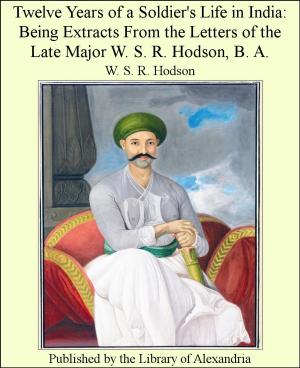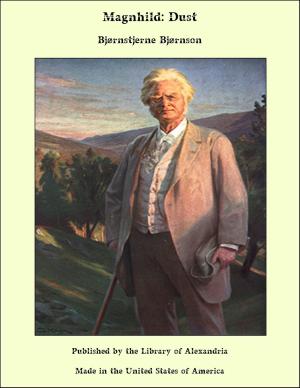Australia in Arms: A Narrative of the Australian Imperial Force and Their Achievement at Anzac
Nonfiction, Religion & Spirituality, New Age, History, Fiction & Literature| Author: | Lieutenant Phillip Frederick Edward Schuler | ISBN: | 9781465615909 |
| Publisher: | Library of Alexandria | Publication: | March 8, 2015 |
| Imprint: | Language: | English |
| Author: | Lieutenant Phillip Frederick Edward Schuler |
| ISBN: | 9781465615909 |
| Publisher: | Library of Alexandria |
| Publication: | March 8, 2015 |
| Imprint: | |
| Language: | English |
It is impossible to look back and recall without a glow of intense pride the instantaneous response made by the young manhood of Australia to the first signal of danger which fluttered at the central masthead of the Empire. As time goes on that pride has increased as battalions and brigades have followed one another into the firing-line; it has become now a pride steeped in the knowledge that the baptism of fire has proven the young nation, has given it an indelible stamp of Nationhood, has provoked from the lips of a great English soldier the phrase, "These men from Australasia form the greatest army that an Empire has ever produced." To-day that pride is the courage with which the people face and mourn the loss of their thousands of braves. Let me recall the first dark days of August 1914, when the minds of the people of the Australian Commonwealth were grappling with and striving to focus the position of the British Empire in the war into which they had been so precipitately hurled. On Sunday, 2nd August, I well remember in Melbourne an army friend of mine being hastily recalled from a tennis party; and when I went to see him at the Victoria Barracks that same night, I found the whole place a glare of lights from end to end of the grim, grey stone building. It was the same the next and the next night, and for weeks, and so into the months. But even when the Governor-General, Sir Ronald Munro Ferguson, sent to the Prime Minister (Mr. Joseph Cook), at noon on 3rd August the telegram bearing the announcement that we all knew could not long be withheld, the strain seemed unlifted. "England has declared war on Germany" was the brief but terrible message quickly transferred to the broadsheets that the newspapers printed at lightning speed and circulated, while the crowds in the streets cheered and cheered again as the message was posted on the display boards. That night the streets were thronged (as they were for weeks to follow), and there was a series of riots, quickly subdued by the police, where raids had been made on German premises. Feeling was extraordinarily bitter, considering the remoteness of the Dominion. The Navy Office was barred to the casual visitor. Military motor-cars swept through the streets and whirled into the barracks square. Army and Fleet, the new Australian Naval unit, were ready. More than one person during those grey days felt a thrill of satisfaction and comfort in the knowledge that of that Fleet unit the battle-cruiser Australia was greater and more powerful than any enemy vessel in Pacific waters.
It is impossible to look back and recall without a glow of intense pride the instantaneous response made by the young manhood of Australia to the first signal of danger which fluttered at the central masthead of the Empire. As time goes on that pride has increased as battalions and brigades have followed one another into the firing-line; it has become now a pride steeped in the knowledge that the baptism of fire has proven the young nation, has given it an indelible stamp of Nationhood, has provoked from the lips of a great English soldier the phrase, "These men from Australasia form the greatest army that an Empire has ever produced." To-day that pride is the courage with which the people face and mourn the loss of their thousands of braves. Let me recall the first dark days of August 1914, when the minds of the people of the Australian Commonwealth were grappling with and striving to focus the position of the British Empire in the war into which they had been so precipitately hurled. On Sunday, 2nd August, I well remember in Melbourne an army friend of mine being hastily recalled from a tennis party; and when I went to see him at the Victoria Barracks that same night, I found the whole place a glare of lights from end to end of the grim, grey stone building. It was the same the next and the next night, and for weeks, and so into the months. But even when the Governor-General, Sir Ronald Munro Ferguson, sent to the Prime Minister (Mr. Joseph Cook), at noon on 3rd August the telegram bearing the announcement that we all knew could not long be withheld, the strain seemed unlifted. "England has declared war on Germany" was the brief but terrible message quickly transferred to the broadsheets that the newspapers printed at lightning speed and circulated, while the crowds in the streets cheered and cheered again as the message was posted on the display boards. That night the streets were thronged (as they were for weeks to follow), and there was a series of riots, quickly subdued by the police, where raids had been made on German premises. Feeling was extraordinarily bitter, considering the remoteness of the Dominion. The Navy Office was barred to the casual visitor. Military motor-cars swept through the streets and whirled into the barracks square. Army and Fleet, the new Australian Naval unit, were ready. More than one person during those grey days felt a thrill of satisfaction and comfort in the knowledge that of that Fleet unit the battle-cruiser Australia was greater and more powerful than any enemy vessel in Pacific waters.















